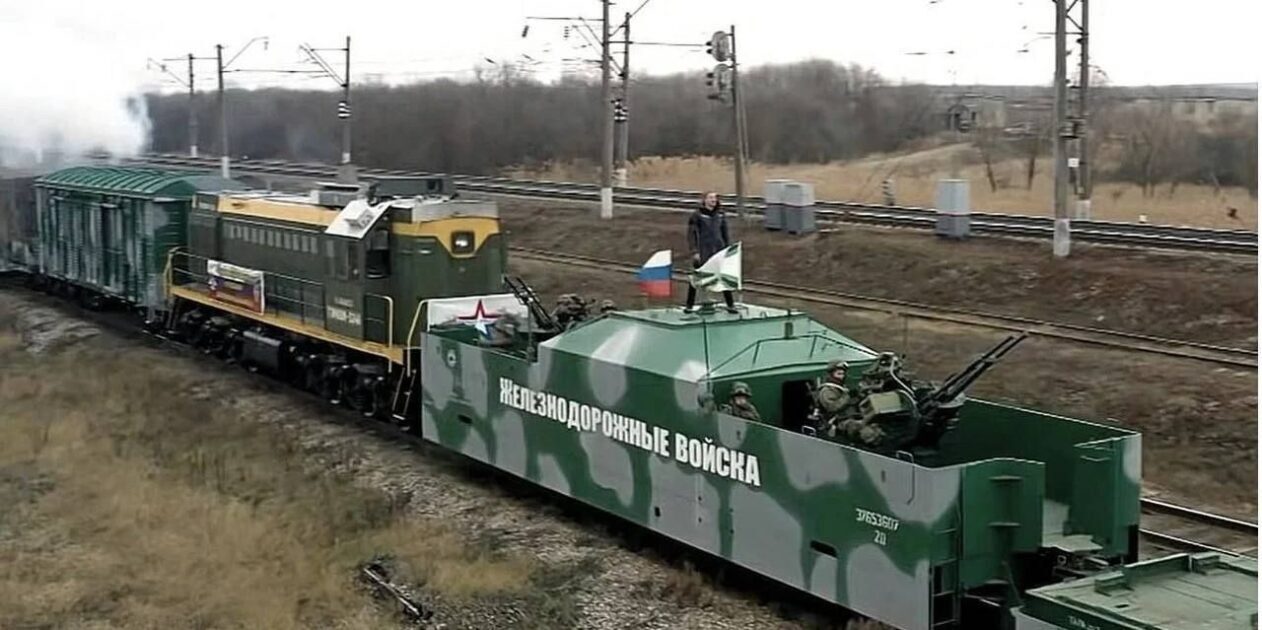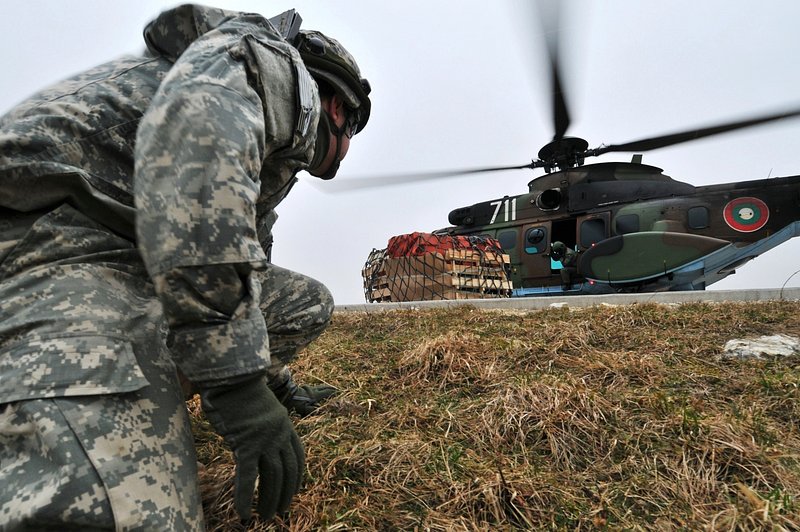Amid the escalating tensions and perceived threat of conflict with NATO, Russia has reportedly decided to deploy specialized Railway Troops under the Northern Fleet to enhance the rapid mobilization of weaponry, troops, and logistical support across Arctic terrain.
Russian media outlet Izvestia, citing sources within the military department, reported that the first railway unit has already been established, with plans to expand based on operational insights gained from its initial deployment.
These units are deemed essential for ensuring the efficient transportation of weaponry, fuel, and other critical resources to remote Arctic locations. Equipped with specialized gear designed for Arctic conditions, these units are poised to play a vital role in enhancing Russia’s regional operational capacity.
The formation of the first railway unit last year has served as a blueprint for expanding similar units, according to sources familiar with the matter.
Drawing from the expertise gained in challenging environments like the Baikal-Amur Mainline, the Russian Railway Troops honed their skills, preparing them for Arctic operations.
Military expert Vasily Dandykin pointed out, “There are many nuances to consider when laying tracks and operating them in the Arctic. But railway workers are no strangers to such conditions and are hardened and proven people. They have already shown themselves in battles in the zone of the special military operation (Ukraine).”
Expanding railway capabilities in the Arctic comes in response to shifting geopolitical dynamics, notably Finland’s recent accession to NATO, which has heightened security concerns along Russia’s borders.
This necessitates the creation of new formations and units to ensure territorial defense and strategic preparedness.
Even amid the ongoing military operations in Ukraine, Railway Troops are actively involved in various technical tasks to ensure the functionality and security of railway infrastructure.
These operations encompass technical reconnaissance, demining of railways, construction of crossings, clearance of debris, and earthworks.
The Railway Troops operate specialized trains such as the “Baikal,” “Amur,” “Volga,” and “Yenisei.” These trains are pivotal in escorting convoys carrying military cargo and restoring railway tracks damaged during hostilities.
Moreover, these specialized trains have weaponry to counter air and ground threats. This includes 23-mm ZU-23-2 anti-aircraft guns and AGS-17 automatic grenade launchers.
Additionally, they are outfitted with electronic warfare systems designed to neutralize radio-controlled explosive devices. Furthermore, the trains are equipped with drones for reconnaissance purposes, aiding in the surveillance of movement routes.

Russia’s Stance On Prospect Of Conflict With NATO
The decision to enhance Arctic infrastructure with railway units has been driven by increasing apprehensions surrounding NATO’s expansion, particularly in light of Finland’s recent accession and ongoing endeavors by Sweden to join the alliance.
NATO officials have been issuing warnings about the imperative of increased readiness to confront unforeseen challenges, such as the potential conflict with Russia.
In contrast, Russia has maintained its stance, denying any intention to escalate the conflict beyond its current scope with Ukraine.
Russian President Vladimir Putin stated in an interview aired on February 8 that Russia would defend its interests “to the end.” However, he expressed no interest in expanding the war to other countries like Poland and Latvia.
During his first interview with an American journalist since Russia’s invasion of Ukraine nearly two years ago, Putin noted that Western leaders had realized it was impossible to inflict a strategic defeat on Russia and were contemplating their next steps.

“We are ready for this dialogue,” he affirmed, expressing belief in the possibility of reaching an agreement to release US journalist Evan Gershkovich of the Wall Street Journal, detained in Russia for nearly a year on spying charges.
Putin made these remarks during a more than two-hour interview with conservative talk-show host Tucker Carlson, conducted in Moscow and aired on tuckercarlson.com.
When asked if he could envision a scenario where Russian troops would be sent to Poland, a NATO member, Putin responded: “Only in one case, if Poland attacks Russia. Why? Because we have no interest in Poland, Latvia, or anywhere else. Why would we do that? We don’t have any interest.
Moreover, expressing dissatisfaction with the substantial financial aid allocated to Kyiv thus far, former President Trump has advocated for de-escalating the conflict in Ukraine, an issue where the Biden administration has fervently supported the Zelenskiy government.
- Contact the author at ashishmichel(at)gmail.com
- Follow EurAsian Times on Google News




